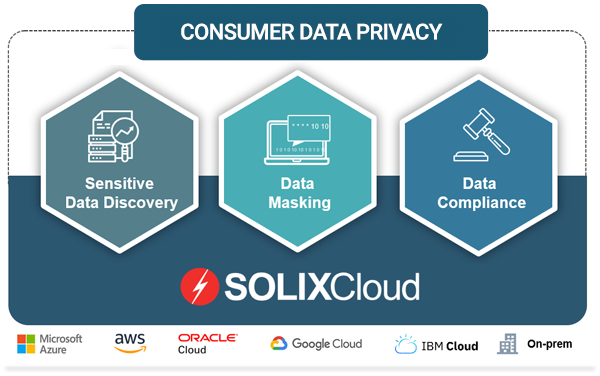
Eight principles of Consumer Data Privacy
Blog Commentary:

At the core of consumer data privacy lie key principles that guide organizations in safeguarding sensitive information. In this blog post, we’ll delve into these principles, uncovering the struggles, misconceptions, and best practice outcomes that establish your organization as a trusted custodian of consumer data.
Consumer data privacy principles give data owners control over their customers personal information. They focus on how companies collect, use, and protect data. By adhering to these principles, organizations can establish a strong foundation for protecting consumer data across any environment.
Key Principles of Consumer Data Privacy

- Transparency: Transparency is the cornerstone of consumer data privacy. The organization must ensure that personal data is processed lawfully, fairly, and transparently. Consumers have the right to know how their data is collected, processed, and stored. As noted by the European Union’s General Data Protection Regulation (GDPR), “All organizations need to have strict policies and procedures in place to deal with data information requests by individuals.” This principle emphasizes open communication and clear data usage policies.
- Purpose Limitation: This principle mandates that personal data should only be used for the purpose for which it was collected. Any secondary use should require additional consent. Failing to comply with purpose limitations can lead to hefty fines. Article 5 of GDPR outlines strict guidelines to ensure that personal data is not processed beyond its original intent. This principle prevents organizations from using personal data for unrelated purposes without obtaining additional consent from the consumer.
- Data Minimization: Data minimization advocates collecting the minimum personal data necessary to achieve the intended purpose. Organizations should refrain from collecting excessive or irrelevant data that is not essential to fulfilling the specified purpose. According to industry insights, minimizing data collection not only helps in compliance but also reduces the risk of breaches by limiting the amount of sensitive information stored. Unnecessary data collection increases the risk of breaches and regulatory penalties.
- Accuracy: The principle of accuracy emphasizes the importance of ensuring the accuracy and integrity of personal data. Organizations must take reasonable steps to ensure that the personal data they hold is accurate, up-to-date, and relevant for the purposes for which it is being used. Under GDPR, consumers have the right to request data corrections if the information held about them is inaccurate. This principle mandates regular reviews and updates to personal data records to prevent inaccuracies that could lead to consumer dissatisfaction or legal issues.
- Storage Limitation: Storage limitation requires that personal data not be retained longer than necessary. Organizations must establish clear retention policies that define how long different types of data will be stored. Reports say that 52% of stored data in organizations is either dark or redundant, making storage limitation a key priority to avoid data hoarding and associated costs. Once the purpose of processing has been fulfilled, organizations should delete or anonymize the data to comply with this principle.
- Accountability: Organizations must take responsibility for their data processing activities and privacy compliance practices. This includes implementing policies and procedures, appointing a data protection officer, conducting privacy impact assessments, and maintaining detailed records of data processing activities.
- Consent: Consent is the bedrock of ethical data collection and processing. Organizations must obtain explicit consent from individuals before collecting or processing their data. Consent should be given or withdrawn freely, specific, informed, and unambiguous.
- Data Subject Rights: One of the core elements of consumer data privacy is ensuring that individuals have control over their personal data. This includes the right to access, correct, delete, and restrict the processing of their data. Consumer rights are critical to GDPR, CCPA, and other global privacy regulations. Companies that provide users with easy access to these rights often experience higher customer satisfaction and lower attrition rates.
SOLIXCloud Consumer Data Privacy Solution’s privacy by design, a W3C industry-standard architecture, allows organizations to navigate the complex landscape of data privacy and security, empowering them to uphold these principles and safeguard the confidentiality of their customers. Together, let’s champion the cause of consumer data privacy and ensure a safe and secure digital future for all.
Learn more: “How to Comply with Consumer Data Privacy Regulations?” The full guide offers actionable steps to ensure compliance with consumer data privacy regulations and protect your business from costly violations. Read it now!
Vishnu Jayan is a tech blogger and Senior Product Marketing Executive at Solix Technologies, specializing in enterprise data governance, management, security, and compliance. He earned his MBA from ICFAI Business School Hyderabad. He creates blogs, articles, ebooks, and other marketing collateral that spotlight the latest trends in data management and privacy compliance. Vishnu has a proven track record of driving leads and traffic to Solix. He is passionate about helping businesses thrive by developing positioning and messaging strategies for GTMs, conducting market research, and fostering customer engagement. His work supports Solix’s mission to provide innovative software solutions for secure and efficient data management.





